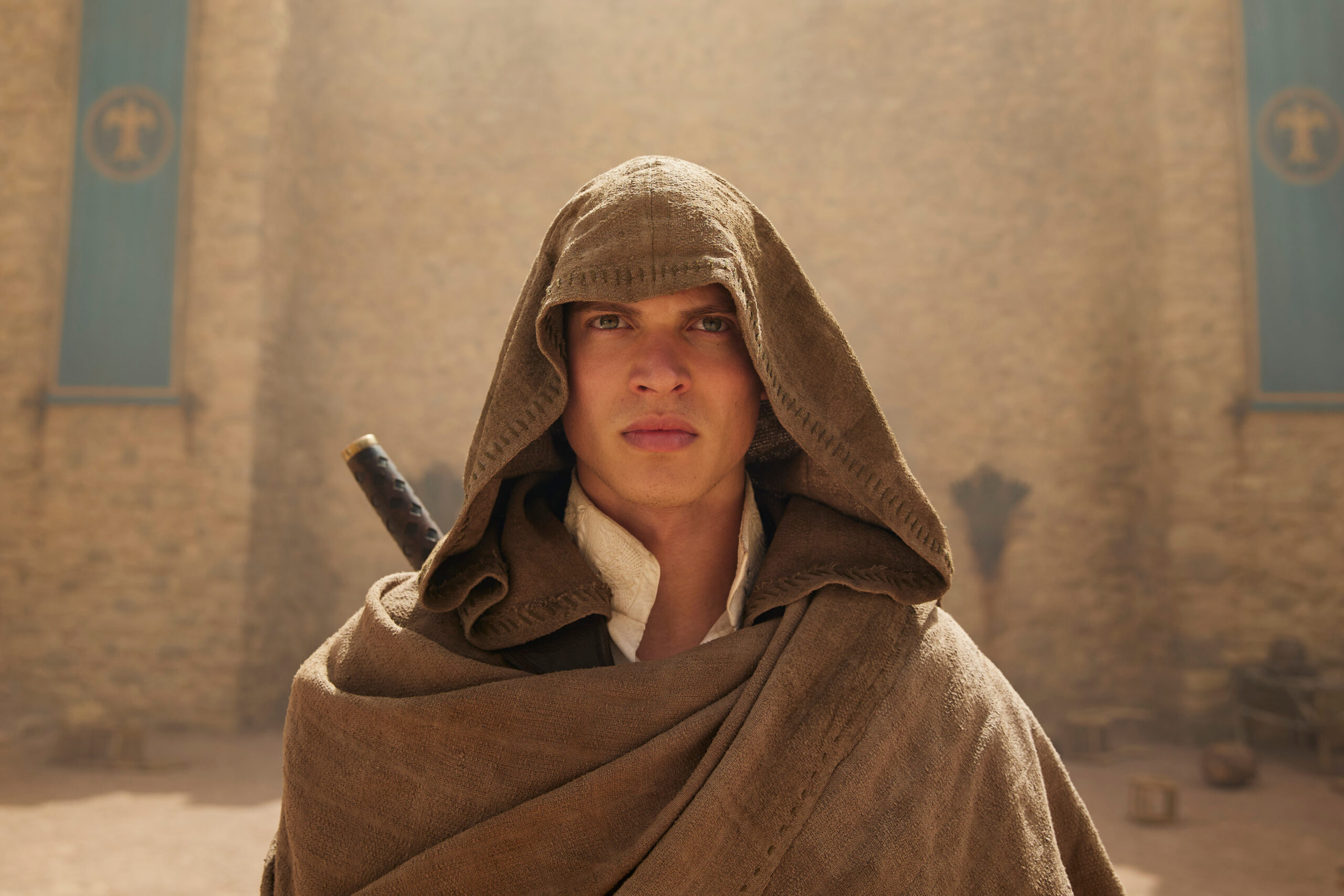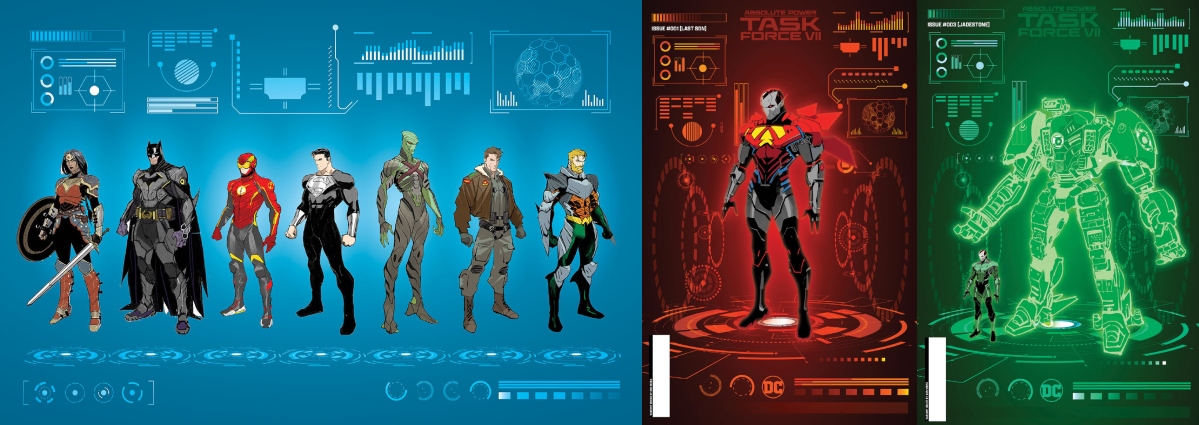![]()
Hard-working British actress, Rosamund Pike, has remained quite visible in a number of films since her breakout role as “Bond girl†Miranda Frost in Die Another Day. Despite the vast number of films she’s appeared in, Pike only started to really get recognition on these shores when she starred in David Fincher’s Gone Girl, for which Pike received an Oscar nomination.
In between, she could be seen in a wide variety of films that include Pride and Prejudice, Doom, Edgar Wright’s The World’s End, and Tom Cruise’s Jack Reacher. After a maternity break, Pike is reunited with another star from that latter film, David Oyelowo, for A United Kingdom from director Amma Assante (Belle).
In the film, Pike plays Ruth Williams, a British working class woman in the ‘40s, who encounters Oyelowo’s Seretse Khama, who happens to be the heir to the king’s thrown of Bechuenaland, at a dance. They instantly hit it off and soon are married without realizing that the ruler of the African nation could come under scrutiny by his people for marring a white woman and an outsider, no less. A United Kingdom tells this great love story about how Seretse and his wife Ruth were separated by the politics between their two countries and what they had to do in order to be reunited.
LRM sat down with Ms. Pike for the following interview at the New York City junket for the film. As always and despite being under the weather, Pike was extremely eloquent and gracious when talking about the movie and also her Oscar nomination for David Fincher’s Gone Girl.
LRM: I remember talking to you and David years ago for “Jack Reacher.†When I saw “A United Kingdom†I thought someone must have seen some of your interviews and liked your chemistry, but he told me the whole story already about how he brought you on. It had been a while since “Gone Girl†and if I remember, you were pregnant during that junket, so did you take a break and this was your first movie back?
Rosamund Pike: Yes, I had my baby, and then I had a movie that actually fell apart that I was supposed to do with Christian Bale (Note: This was James Mangold’s Travis McGee film The Deep Blue Good-by) and then he got injured, and so the first big movie was another movie for Fox actually which didn’t happen, so there was the logical point of going back to work was pushed to doing this movie.
LRM: Besides doing another movie with David, what was the appeal of doing this movie? Did you know anything about this part of British history?
Pike: It was the love story. It was this sensational love story where I thought nobody’s going to leave the cinema here without feeling hope. It’s got everything, this story. It’s got the breadth of a story that travels from London to Botswana. You’ve got a committed, beautiful love story, which really is about love, not lust dressed up as love, and you’ve got great political change brokered by love. I thought this is everything. This is so inspiring; you couldn’t fail to be inspired by these two.
LRM: I loved seeing the two of you together, and I was a little upset during the section when you’re separated, because you start rooting for them to get back together.
Pike: Yeah, except it was so good, the chemistry that we had—David is my total touchstone for playing Ruth. You know, the whole performance, whatever I did, it was really all about him, I felt. If you ask, “How did you find Ruth?â€â€¦ I found Ruth looking at David.
LRM: I didn’t get to ask him about the boxing but you have some impressive jitterbug dance scenes a swell…
Pike: I loved doing that.
LRM: Did you have any practice or experience doing that style of dancing?
Pike: No, but I’ve just got mad passion. I’ve got passion but no real skill, but I’ve got a huge passion.
LRM: It’s a great scene but I’d think for just those two or three minutes, you have to do a lot of training and work.
Pike: Huge, yeah, yeah, and it’s very fast, actually, and it’s a wonderful way into that time and the chemistry, and how incredibly exhilarating it was for having quite a chaste relationship. It’s just such an intoxicating entry into the period, and we had a fantastic teacher, who really made us kind of think about what the body language is conveying, and how exhilarating it would be to be that close to someone and how you can inhale them. It was very exciting. I think everyone playing lovers should probably learn to dance together, even if it’s not required in the movie.
LRM: It’s one of those things that fascinates me about acting in general is how many things you learn for roles….
Pike: I know, it’s brilliant, except the point is that you’re always good at getting to a basic level. I think that’s what most actors are good at getting to a basic level pretty fast. The trouble is that we never go beyond basic.
LRM: What was it like working with Amma Asante? When I first saw “Belle,†I thought this was a fresh young director and knew nothing about her time as an actress, so I was curious about how it was working with her.
Pike: Oh, I think she was really the perfect voice for this film, because the way she bridges both characters. She’s a woman, she’s English, she’s of Ghanaian descent. She’s got a foot in Africa and a foot in England, and yet, is very open about the fact that she doesn’t think she can do what Ruth did. She doesn’t feel that now as a total Londoner, she could… but she’s also in a mixed marriage, so can understand some of those concerns, and it’s very important to her to bring a woman’s story to the screen. She felt it was as much Ruth’s story as it is Soretse’s story. It’s not a woman’s story, obviously—Soretse is the principal character—but she put in the female element and she made the relationships with Ruth and Soretse’s sisters sing much more in the film. She injected all those lovely details where once she found out that it was the women in Botswana that built the houses, those round traditional Rondavels, she said, “We have to have that. We have to have Ruth helping with that,†as she sort of becomes acclimatized and gains the acceptance of the local community in Africa.
![]()
LRM: The movie is written by a man, so having a woman director helped the story be a bit more balanced. What was it like doing those scenes in Africa and immersing yourself in that environment?
Pike: Sensational. You know, with those scenes where we were building the houses, we were in a very, very rural, very poor community, which was eye-opening and fascinating. Just watching the children be so creative with so little—building these amazing articulated toy cars out of wire and coke cans and bottle tops and bits of rubber that comes off vehicles. They were just these incredible toys he built himself. I gained an understanding of Botswana through the filming of this movie, and that’s also—as well as the skills you pick up—you gain life experience, which is also a gift. The local people who we featured in the film, they just gave themselves to the movie in such a generous way, including this moment where the ladies all sing to Ruth, which was not asked for, not in the script. They were just asked to come and lay fruit and they just sang, and it was the most amazing gift.
LRM: I also heard you met the President of Botswana, that he just showed up on set and paid you some nice compliments about seeing his parents again.
Pike: Yeah, that was our son. I think he flew in, because he knew he was going to a movie set that was going to be about his Mum and Dad, and I don’t think he was prepared for that, having the emotional reaction that he did, to seeing his dead parents alive again, as it were. Although I don’t look like his mother, I think we got the dress and everything enough alike to kind of stop him in his tracks. It was very funny. I got this very funny picture of David and I with him where we’re just beaming like we’re the proudest parents in the world. It’s funny.. we’re sort of inappropriately happy.
LRM: I hope they’ll release that picture. I also wanted to ask you about your Oscar experience in hindsight. I’m sure when you’re in it, I’m sure there’s a lot of interviews and handshaking and pictures, but in hindsight, what was it like to go through all that for “Gone Girl� Would you want to do it again?
Pike: Oh, I definitely would like it again someday. Yeah, for sure. I had heard that there was this whole thing that you have to campaign for an Oscar and it’s become very political, and I was pregnant and giving birth with a very small baby, and I didn’t do anything, and I got nominated, and I thought, “Well, there you go. That restores my faith.†I haven’t campaigned and I haven’t turned this into a political dance. Of course, it was a testament to the fact that Gone Girl was a big film. It was seen by a lot of people and it was this sort of Holy Grail, for me, of making a drama that adults want to go see in the cinema. They’re not going to wait for it to come out on DVD, and it was part of a conversation that people wanted to be a part of. Having your performance recognized like that, it really means a lot. It means you’ve got the badge of approval. They can’t take it away from you even if you don’t end up with the gold; you still have a nomination they can’t take away, and it’s nice that people come up to you and say, “You really deserved that nomination.â€
LRM: I don’t thinkmany people realize the amount of work you put into most performances and for the hour and a half or two hours they see on screen.
Pike: Sure, of course not, and Gone Girl, it was an amazing experience. I sort of put myself through the mangle for it really, but then you think, “Well, why wasn’t my director nominated because of this performance?†Occasionally think about how luck we were to have David Fincher and how much of a different movie it could have been in other hands. It could have been incredibly tacky or it could have been sensationalist or just tonally… His mastery of that tone was second to none, yeah.
LRM: What have you been working on lately? I know you did a movie with Scott Cooper called “Hostilesâ€; have you shot that already?
Pike: Yeah, yeah, we shot that all last summer. People will start seeing it soon I hope. That was an amazing experience, I loved working with Scott—generous, giving, thoughtful, beautiful director. Very profound story. I haven’t seen it, but it was a very profound experience making it, and a real journey into America’s past and America’s history. There is a big Native American element in this film and that was amazing for me to be exposed to that culture, and rather like being in Botswana or having these profound meetings with other cultures. It’s such a privilege.
LRM: Had you been making a conscious effort to do more modern-day roles?
Pike: No, in a way I’m doing much more historical things. I’ve been doing historical things. I think there’s a deficit in my knowledge about various points in history and I’m rectifying it, and I find it so illuminating to our present moment doing these historical films. I’m loving it.
A United Kingdom is now playing in select cities. Check out the interview with Pike’s co-star, David Oyelowo, below

 FOR FANBOYS, BY FANBOYS
Have you checked out LRM Online’s official podcasts and videos on The Genreverse Podcast Network? Available on YouTube and all your favorite podcast apps, This multimedia empire includes The Daily CoG, Breaking Geek Radio: The Podcast, GeekScholars Movie News, Anime-Versal Review Podcast, and our Star Wars dedicated podcast The Cantina. Check it out by listening on all your favorite podcast apps, or watching on YouTube!
Subscribe on: Apple Podcasts | Spotify | SoundCloud | Stitcher | Google Play
FOR FANBOYS, BY FANBOYS
Have you checked out LRM Online’s official podcasts and videos on The Genreverse Podcast Network? Available on YouTube and all your favorite podcast apps, This multimedia empire includes The Daily CoG, Breaking Geek Radio: The Podcast, GeekScholars Movie News, Anime-Versal Review Podcast, and our Star Wars dedicated podcast The Cantina. Check it out by listening on all your favorite podcast apps, or watching on YouTube!
Subscribe on: Apple Podcasts | Spotify | SoundCloud | Stitcher | Google Play



